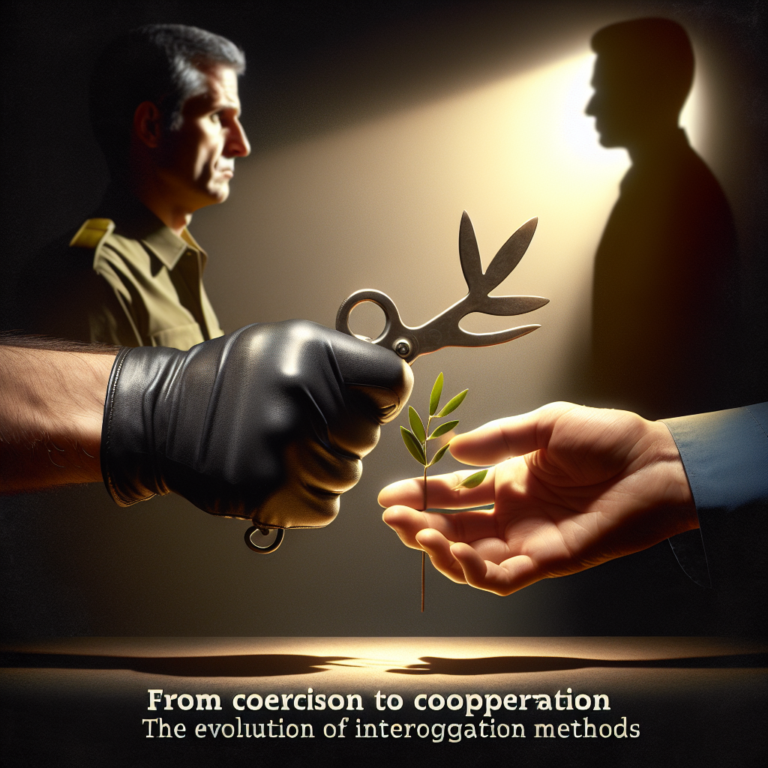
Introduction
Imagine being faced with the police in a high-pressure situation. Your freedom hangs in the balance, yet you may not fully grasp your rights. For many individuals, the critical moment of "Miranda" warnings can determine the outcome of their legal journey. Understanding these nuances is not only a matter of legal proficiency but of justice itself. The topic of Assessing Miranda Competence: Legal Standards and Implications raises poignant questions about who is equipped to understand their rights during an interrogation, and how this understanding—or lack thereof—can influence legal proceedings.
This article dives into the intricate layers of assessing Miranda competence, exploring the legal standards and far-reaching implications. Through case studies and expert insights, we aim to illuminate why this topic is vital for legal professionals, defendants, and advocates for justice alike.
Understanding Miranda Rights
Before diving deep into assessing competence, let’s clarify what Miranda rights entail. Constitutional guarantees protect individuals against self-incrimination, ensuring that they are informed of their rights prior to any interrogation by law enforcement. Specifically, these rights include:
- The right to remain silent
- The right to an attorney, whether provided or retained
Key Cases That Shaped Miranda Rights
Miranda v. Arizona (1966): The landmark case that established the requirement for police to inform suspects of their rights during interrogations.
Dickerson v. United States (2000): Affirmed the necessity of Miranda warnings, preventing Congress from overruling the Miranda requirements.
- Berghuis v. Thompkins (2010): Underscored the importance of individuals actively invoking their right to silence.
These cases underscore the gravity of being informed and understanding one’s rights, making it imperative to assess an individual’s capability to do so under stressful conditions.
The Importance of Assessing Miranda Competence
What Is Miranda Competence?
At its core, Miranda competence refers to a suspect’s ability to understand their rights and make informed decisions during police interrogations. Assessing this competence involves evaluating several key factors:
- Cognitive abilities: Can the individual comprehend the information?
- Emotional state: Is the individual under extreme stress or duress that might cloud their judgment?
- Education and background: Does the suspect have the necessary legal or situational awareness to understand the implications of waiving their rights?
Why Assessing Miranda Competence Matters
Protecting Individuals’ Rights: Failing to assess Miranda competence can lead to wrongful confessions and, ultimately, miscarriages of justice.
Societal Trust in Legal Systems: When legal standards prioritize individual rights, public faith in the justice system is bolstered.
- Legal Precedents: Rigorous assessments contribute to shaping future case law, establishing precedents for handling similar situations.
Legal Standards for Assessing Competence
The law lacks a standardized test for assessing Miranda competence, creating an urgent need for clarity in the judicial process.
Competence as a Legal Standard
Legal experts often refer to several criteria when discussing competence:
Rationality: Decision-making capabilities should be logical and based on understanding.
Knowledge of Consequences: Individuals must appreciate the ramifications of waiving their rights, including the possibility of self-incrimination.
- Voluntariness: Any waiver of rights must be made free from coercion.
Tools for Assessment
Several tools have come into play to aid legal professionals in evaluating Miranda competence. These may include:
Interviews and Questionnaires: Standardized instruments like the Competence Assessment for Standing Trial for Defendants with Mental Retardation (CAST-MR) can provide useful insights.
- Expert Testimony: Psychologists and psychiatrists may conduct assessments and provide expert opinions on a defendant’s competency.
Chart of Assessment Tools
| Assessment Tool | Purpose | Limitations |
|---|---|---|
| Interviews | Gauge awareness and understanding | Subjective interpretation |
| Standardized Questionnaires | Measure cognitive and emotional factors | May not capture unique circumstances |
| Expert Assessment | Provide clinical insight | High costs, availability issues |
Real-World Applications and Case Studies
Case Study 1: The Confession of "John Doe"
Background: John was arrested after a robbery and interrogated without being fully informed of his Miranda rights due to language barriers.
Assessment Outcome: A later evaluation revealed he did not understand the implications of his waiver, leading to his confession being ruled inadmissible.
Relevance: This case underscores the importance of language proficiency and individualized assessments in determining Miranda competence.
Case Study 2: The Voluntary Nature of Confessions
Background: Sarah, a young adult with mild intellectual disabilities, confessed to crimes after hours of interrogation.
Assessment Outcome: Following an evaluation, it was determined her confession was involuntary due to her inability to grasp the situation’s seriousness.
Relevance: This highlights the potential for coercion and underscores the need for tailored assessments for individuals with cognitive impairments.
Chart of Case Studies
| Case Study | Key Findings | Implications |
|---|---|---|
| John Doe’s Interrogation | Language barriers affected comprehension | Need for language-sensitive evaluations |
| Sarah’s Coerced Confession | Cognitive limitations impacted decision-making | Advocacy for protections for vulnerable populations |
Implications of Assessing Miranda Competence
For Defendants
Failure to assess Miranda competence may lead to unjust outcomes. It highlights the need for attorneys:
- To advocate for thorough assessments of their clients.
- To challenge confessions based on improper handling of Miranda rights.
For Legal Professionals
Legal professionals must prioritize incorporating competence assessments into their practices. This involves:
- Training on how to recognize signs of incompetence.
- Engaging expert witnesses when necessary.
For Policymakers
The consistent assessment of Miranda competence can inform legal reforms. Potential policies may include:
- Developing standardized protocols for assessing competence.
- Mandating legal representation for vulnerable individuals during interrogations.
Conclusion
The journey through Assessing Miranda Competence: Legal Standards and Implications is filled with legal intricacies and ethical considerations. From defining competence to understanding its implications for both defendants and the justice system, every element carries weighty consequences.
It’s essential for legal professionals and society to prioritize the fair and just treatment of individuals during their most vulnerable moments. By honing assessment skills and advocating for systemic changes, we strive to build a legal system that respects individuals’ rights and fortifies the public’s trust.
FAQs
1. What are Miranda rights, and why are they important?
Miranda rights inform suspects of their right to silence and legal representation, crucial for protecting against self-incrimination.
2. How do I know if someone is capable of understanding their rights?
Signs of competence include the ability to articulate understanding of rights and discuss consequences of waiver. Psychological evaluations can also help.
3. Can confessions be used if the defendant was deemed incompetent to understand Miranda rights?
Typically, confessions obtained during moments of incompetence are ruled inadmissible in court, affirming the need for thorough assessments.
4. What should I do if I suspect someone has not understood their Miranda rights during an interrogation?
One should seek legal representation immediately to challenge the validity of the confession and advocate for an evaluation of the individual’s competence.
5. Are there resources available for understanding Miranda competence better?
Legal textbooks, professional seminars, and online courses can provide valuable insight into this evolving field of law.
By prioritizing Assessing Miranda Competence: Legal Standards and Implications, we enter a crucial dialogue about justice, human rights, and societal accountability. Together, we can advocate for a fairer legal process that honors the dignity and autonomy of every individual.












